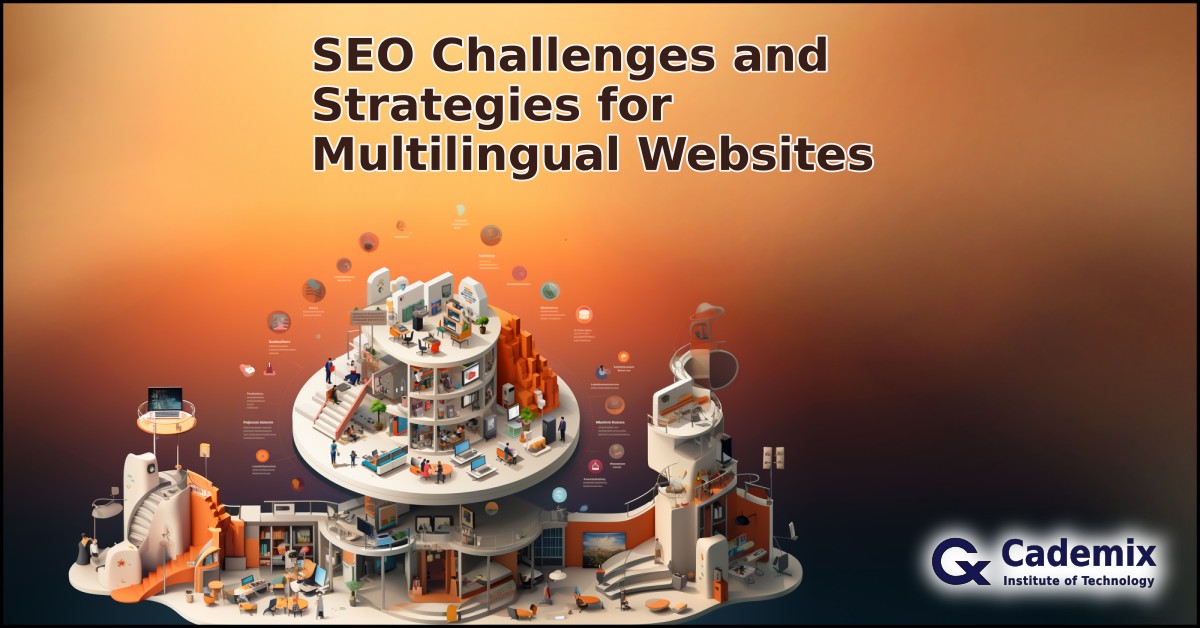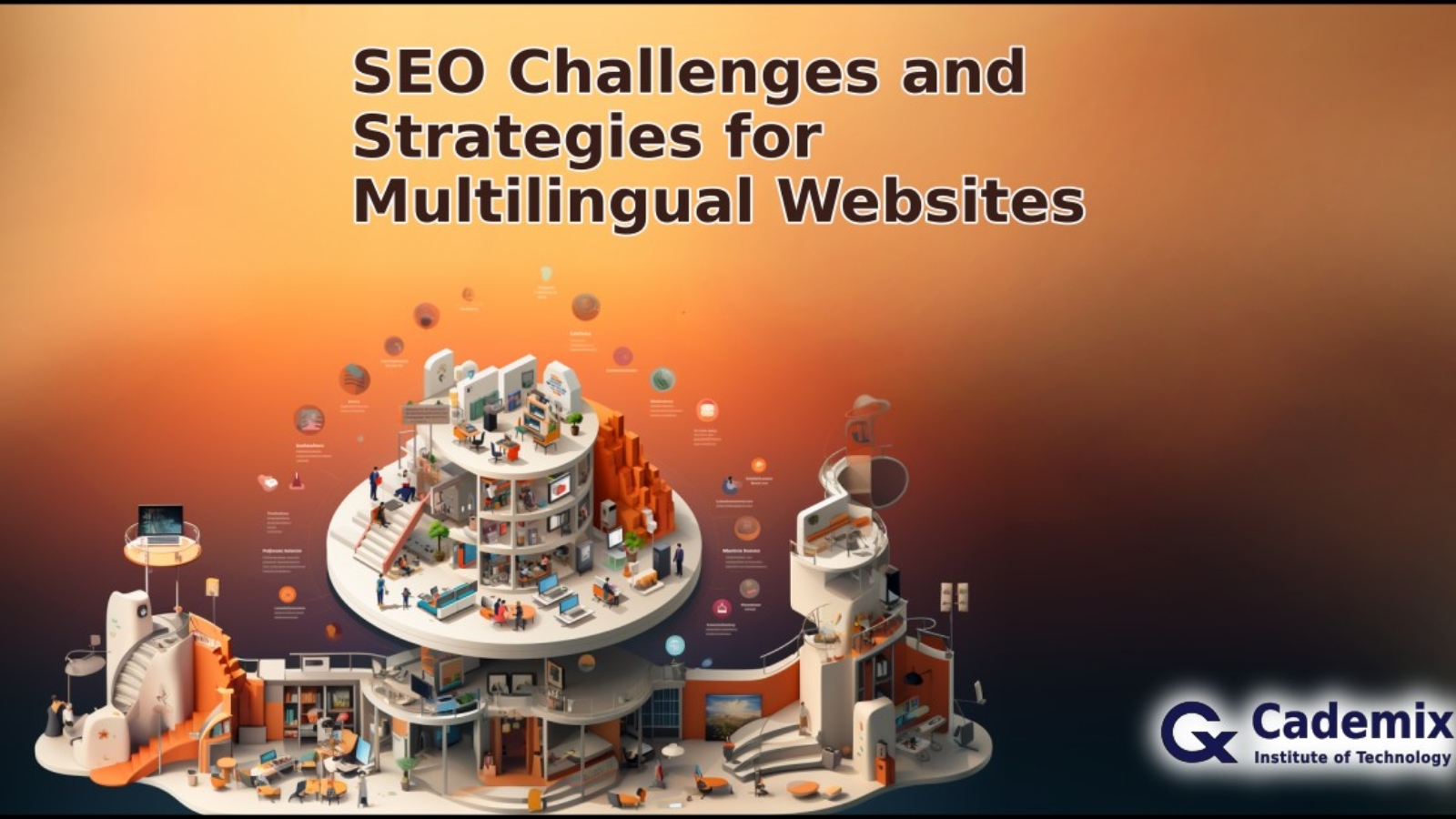The modern digital landscape demands a multilingual approach to SEO. This article delves into the intricacies of optimizing for different languages and cultures, offering actionable strategies to navigate the complex world of multilingual SEO.
Mahdi Amin-Akhlaghi, Cademix Institute of Technology

Introduction
Importance of Multilingual SEO in a Global Market
In the era of globalization, having a multilingual SEO strategy is not just an advantage but a necessity. With the rapid expansion of the internet across different countries and cultures, businesses can no longer afford to cater only to a monolingual audience. Implementing a multilingual SEO strategy allows for broader reach and higher engagement, directly impacting your bottom line.
Common Challenges Faced
Navigating the landscape of multilingual SEO comes with its own set of unique challenges. From cultural sensitivities to technical intricacies like hreflang tags and geo-targeting, organizations must be well-versed in various aspects to succeed.
Overview of the Article’s Scope
This article aims to provide a comprehensive guide to the challenges and strategies involved in multilingual SEO. The discussion will cover key considerations such as tools, cultural factors, and future trends, equipping you with the knowledge to optimize your global SEO strategy effectively.
Challenges and Strategies in Multilingual SEO
Growing Global Audience
The expansion of the internet has led to an increasingly international audience. This has led to greater opportunities but also challenges in targeting specific demographics. A strategic approach to multilingual SEO can ensure your reach is both broad and relevant.
SEO Ranking Considerations
Different search engines may have different ranking algorithms for different languages or regions. Knowing how these algorithms work can help you tailor your SEO strategy accordingly.
Cultural Sensitivity
Beyond mere translation, understanding cultural nuances is key. Certain phrases or symbols may have different meanings in different cultures, impacting how your website is received.
Language Variations and Dialects
Languages often have multiple dialects, and what is correct in one may not be in another. A nuanced approach to language selection in SEO can make a substantial difference.
Local Search Algorithms
Search engines often use local search algorithms for geographically relevant results. Understanding how these work is crucial for effective multilingual SEO.
Algorithm Updates
Search engines are constantly updating their algorithms, making it a challenge to maintain rankings across multiple languages.
Content Duplication Concerns
Creating content for multiple languages might trigger search engines’ duplicate content penalties if not managed correctly.
Website Structure (Subdomains vs. Subfolders)
Choosing between subdomains and subfolders can have implications for SEO, affecting how search engines index your website’s various language versions.
Keyword Optimization
The importance of keyword research multiplies when you are dealing with multiple languages. The keyword that works in one language might not have a direct, effective translation.
High-Quality Translations
Google and other search engines can detect poor-quality translations, which could negatively impact your SEO. High-quality, human translations are essential.
Cultural Context
The meaning and impact of content can significantly change based on the cultural context it’s placed in. This makes the localization of content more complex than mere translation.
Tools and UX Considerations
Automated Translation Platforms
While automated translation platforms like Google Translate are quick and convenient, they may not always offer the most accurate translations. Care should be exercised in solely relying on these for a global audience.
Human Translators
Human translators provide the nuance that machines can’t capture. Particularly when dealing with culturally sensitive or technical material, human intervention is advisable.
Quality Assurance Process
Ensuring quality is a constant endeavor. It involves a multi-step process that includes editing, proofreading, and a review by native speakers when feasible.
SEO-focused Translation Services
Some translation services specialize in SEO, knowing how to choose and position keywords and structure the translation to improve SEO rankings.
Mobile Optimization
As mobile usage overtakes desktop, having a mobile-optimized website is not just beneficial but essential. This becomes more complex when dealing with multiple languages and scripts.
Loading Speed
Slower loading times can severely impact SEO rankings. When adding the complexity of translation, it’s essential to maintain site performance to prevent a drop in rankings.
Layout Considerations
Languages read from right to left or use different scripts, necessitating layout adjustments. This is crucial for both usability and SEO.
A/B Testing
Multilingual A/B testing can offer insights into what strategies are effective for different audiences. This includes everything from layout to keyword usage.
Application and Future Outlook
Companies Succeeding with Multilingual SEO
Many companies have successfully scaled their operations internationally through effective multilingual SEO strategies. Their success often hinges on the use of localized content, appropriate keyword optimization, and cultural sensitivity.
Lessons Learned
Common lessons include the importance of high-quality translation and localization, understanding local search algorithms, and the need for ongoing optimization.
Future Trends in Multilingual SEO
As the digital landscape continues to evolve, we can expect new trends such as voice search optimization and increased focus on local SEO to have a considerable impact on multilingual strategies.
The Role of AI in Future Strategies
Artificial intelligence is set to play an increasingly important role in SEO strategies, potentially automating many aspects of translation, keyword optimization, and even content creation.
Ethical Considerations
When targeting multiple languages and cultures, it’s important to consider ethical implications such as cultural appropriation, data privacy, and informed consent.
Conclusion
Summary of Challenges and Strategies
Throughout this article, we have delved into the complexities surrounding multilingual SEO. From growing global audiences to the ever-changing landscape of search algorithms, businesses face a multitude of challenges. Strategies like employing high-quality translations, taking cultural context into account, and staying updated on local search algorithms are essential for successfully navigating the global digital marketplace.
A Call to Action for Businesses
As businesses continue to expand their reach across borders, the importance of effective multilingual SEO cannot be overstated. It’s crucial for companies to invest in a comprehensive strategy that addresses the unique challenges of this digital frontier. By doing so, they can position themselves favorably in a competitive market and ensure that their products and services are easily discoverable by a global audience.

